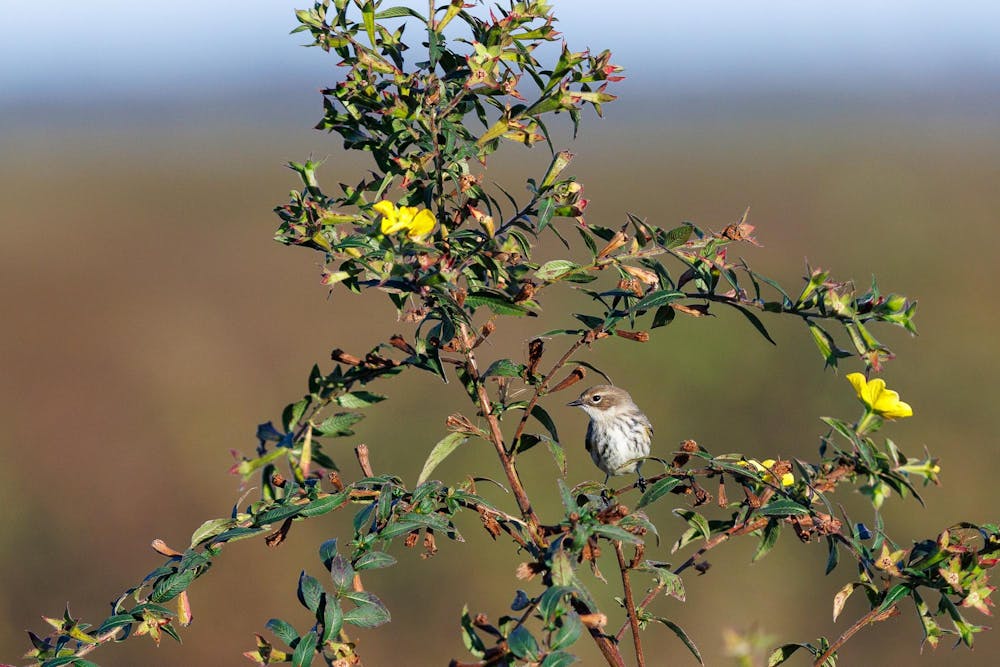Federal funding cuts and a record-long government shutdown are shaking up environmental and conservation agencies across Alachua County.
From stalled U.S. Department of Agriculture funds to frozen land-preservation funds, the shifts are already thinning staff and slowing on-the-ground environmental programs, local conservation agencies say.
Tom Kay, executive director of the Alachua Conservation Trust, said federal funding cuts will impact everyone eventually, especially when it comes to the natural landscape.
The trust works in habitat restoration, conservation and environmental education and outreach in 22 North Florida counties. The organization’s conservation work and staffing numbers have been affected by the funding cuts.
“This is just a really dangerous game that we’re playing right now,” Kay said, “cutting vital programs within our government.”
The trust is partly funded by the USDA, Kay said, as well as through partner organizations like the National Fish and Wildlife Foundation.
These funds go toward various conservation efforts, like conducting prescribed fires. Some areas in Alachua County are fire-dependent, meaning they rely on fire as a natural process to maintain their biodiversity. Prescribed fires help avoid “catastrophic wildfires,” Kay said.
This funding was frozen in January 2025, which means these wildfires could occur more often in Florida, he said.
The Alachua Conservation Trust and Volusia County were jointly awarded $25 million from the National Resources Conservation Service in 2023, Kay said. However, in early July, the federal government announced the funds — which were largely intended to support Florida farmers, particularly the protection of sensitive agricultural land — would be cut to $2 million.
These impact farmers’ work through halting projects like the prescribed fire program, reducing the quality of soil health and vegetation quality. They also threaten farmers’ livelihoods as jobs in the field become more uncertain.
Alachua Conservation Trust filed an appeal to an advisory board a couple weeks ago, Kay said, which will review and determine whether the funding can be reinstated. If the funding remains slashed, staff reductions will follow, he added.
Kay said the Alachua Conservation Trust started the year with 26 full-time staff members. It now has 21. One staff member was furloughed during the government shutdown, and another was moved from full time to half time. The other three workers were either fired or quit their jobs.
While alternate funding sources could provide a solution, Kay said, there is the added concern of workforce disenfranchisement. He predicts shared enthusiasm for working in the conservation field will likely taper given the increase in federal funding cuts.
Stephen Hofstetter, the director of Alachua County’s Environmental Protection Department, said in an email that most of the organization’s funding comes from local and state funds, so federal cuts are not affecting staffing. The environmental department provides natural resource protection through stormwater management, environment planning and land conservation.
The department applied for some federal funds earlier this year, including a grant to Alachua County from the American Farmland Trust, funded by the USDA. The Land Transfer Navigators grant, alongside other reimbursement funds for a conservation property acquisition that was previously made, were paused during the government shutdown.
It’s unclear whether these programs have now resumed.
With grants like these paused, Hofstetter said, there is greater burden on local funding sources to keep environmental programs alive. He said his department and similar organizations must continue being efficient with their programing in diversifying their funding efforts by applying to alternate sources rather than relying primarily on federal funding.
Climate advocacy groups not reliant on state funding, meanwhile, are doubling down on their commitments to environmental outreach.
In a time like this where sustainability is being “shoved to the side,” it’s important for student communities to do what they can, said Abigail Trachtenberg, a 20-year-old UF sustainability studies major. Those efforts should continue with or without the support of the federal government, she added.
Trachtenberg is the lead organizer for genCLEO. The club’s mission is to educate students about local and federal policies affecting the climate crisis through workshops, panels with climate experts and collaboration with other environmentally-focused experts.
She said the club lobbies in Tallahassee alongside doing outreach.
Fighting funding cuts and policies that affect the environment requires a passionate community, according to Trachtenberg, even if that passion is split among multiple smaller organizations.
“At the end of the day, we’re all sort of fighting for the same thing,” she said.
Contact Swasthi Maharaj at smaharaj@alligator.org. Follow her on X @s_maharaj1611.

Swasthi is the Fall 2025 university administration reporter. She's previously worked as general assignment reporter with The Alligator, and you can also find her work in Rowdy Magazine or The Florida Finibus. When she's not staring at her laptop screen or a textbook, she's probably taking a long walk or at a yoga class.






